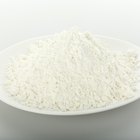
bhofack2/iStock/Getty Images
According to the U.S. Food and Drug Administration, peanuts are one of the most common food allergens. People who are allergic to peanuts may break out in hives, experience tingling in their mouths or have trouble breathing if they consume peanuts. Although traditional hummus consists of chickpeas, sesame oil and garlic, hummus manufacturers and restaurants may add other ingredients that can trigger a reaction.
Prepackaged Hummus
Prepackaged hummus should list its ingredients on the label. Read each ingredient carefully and watch for sources of peanuts, such as peanut oil and kernels. If you're allergic to any of the ingredients or if the list uses ambiguous terms, like natural flavoring, don't purchase the hummus. Also, avoid products that might contain traces of nuts or are manufactured on equipment shared with nuts. Some countries, including the United States, require manufacturers to provide this information on product labels.
Hummus in Restaurants
Ask the staff for all the ingredients contained in the hummus and if the kitchen staff takes extra steps to avoid cross-contamination, including separating equipment used with nuts from equipment not used with nuts. If a large percentage of a restaurant's dishes contain nuts, you might not want to eat there due to the increased likelihood of cross-contamination. Avoid restaurants that refuse to provide you with a list of ingredients or give a simple answer about the safety of their foods. They might not be aware of every ingredient that contains peanuts.
Prepackaged Hummus From Foreign Countries
Some stores may sell hummus from foreign sources and the ingredients may be listed in a foreign language. If you don't understand the list of ingredients, don't purchase the item. Additionally, manufacturers from some countries may not be required to state whether their products are made on equipment shared with nuts or if traces of nuts may be present.
Eating Hummus Safely
Make a list of spices, additives and other ingredients derived from peanuts. Take it with you to the grocery store and to restaurants so you can check it against a product's listed ingredients. Always read the label for all foods you're considering buying, even if you've been buying them for years; the ingredients can change at any time. If your child eats at a school cafeteria, alert the school about his peanut allergy before his first day. The staff might be able to accommodate your child's needs. If you can't find hummus that's safe to eat, make your own using a food processor and an allergen-free recipe.
Related Articles

Substitute for Peanut Satay Sauce

A Gluten-Free Diet and Torula Yeast

How to Prepare & Fry Raw Peanuts

Is There Gelatin in Donuts?

Description of Spanish Foods

Healthy Unprocessed Lunch Choices
How to Make Homemade Tortilla Chips

Can I Eat Taco Seasoning on a ...

How to Eat Fennel Seeds

How to Make Guacamole Seasoning

How to Make Salted Mixed Nuts

How to Spot Fake Citizen Watches

How to Make Pistachio Flour

Pickles and Gluten

Can I Use Rolled Oats in Place of ...

Foods With Calcium Phosphate

Portillos / Barnellis Nutrition ...
Nutrition Information for Pho Hoa

Is the Slow Cooker a Healthy Way to ...
Easy-to-Make Lunch for 50 People
References
Writer Bio
Rupinder Dhillon is an electronic artist, sound engineer and professional writer, specializing in technology. Her research has been published by the Association for Computing Machinery and College Art Association. She holds a Master of Fine Arts in digital arts from University of California, Santa Cruz, and a Bachelor of Science in music technology from London Metropolitan University.
Photo Credits
bhofack2/iStock/Getty Images